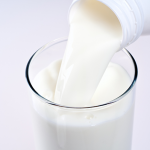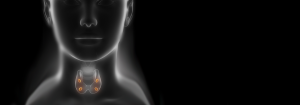Frequently Asked Questions on iodine
Please note, if you have a diagnosed thyroid disorder, please visit the British Thyroid Foundation (BTF) website for information.
List of FAQs relating to iodine intake and assessing status – answers below
Can I have a test for iodine deficiency?
What is the recommended daily amount of iodine? Can you give me an idea of a meal plan so I can get this amount?
Can you please tell me what foods contain iodine?
I have heard that organic milk does not contain iodine – is that true?
I’ve just read that iodine can be bad for your thyroid. i like to eat a small pack of sushi every day for my lunch. Should I stop?
I eat a lot of broccoli/kale/seafood does this interfere with my iodine absorption and affect my thyroid?
What is the best way to get iodine into my children, as they will not eat vegetables or fish?
I do not have a thyroid disorder but I do take an iodine support formula, can you tell me if this will give me more energy?
I have read on the internet that taking kelp supplements is good for your thyroid/can help you lose weight. Is this true?
I know that taking iodine is beneficial when planning a baby and during pregnancy, but is it possible to take too much?

Answers to the FAQs above
Can I have a test for iodine deficiency?
- There is no method for assessing iodine status in an individual. You cannot ask your GP or midwife for a test. Sometimes urine tests are suggested for measuring iodine status. However, this is only suitable when applied for population monitoring, or research. Urine testing cannot be used to assess an individual’s status.
- The only way to know if you are likely to be iodine deficient is to consider iodine intake from diet. See our factsheet on iodine for more information.
- You can seek personalised dietary advice from a registered dietitian or AfN-registered nutritionist who can support you to ensure that your diet is healthy, balanced, and iodine replete.
What is the recommended daily amount of iodine? Can you give me an idea of a meal plan so I can get this amount?
The World Health Organisation recommendations are as follows:
- Children 0-5 years: 90 μg/day
- Children 6-12 years: 120 μg/day
- Adults (and those over 12 years): 150 μg/day
- Pregnant women: 250 μg/day
- Women who are breastfeeding: 250 μg/day
It is difficult to give an accurate meal plan that will provide sufficient iodine as this depends on the age of the individual. Furthermore, the concentration of iodine in foods varies with season (for example in milk), the soil iodine content, and many other factors.
Our iodine fact sheet provides approximate iodine concentrations in a range of foods that can act as guide.
It is important that excessive iodine intake is avoided as this can also lead to problems with the thyroid.
Can you please tell me what foods contain iodine?
Our iodine fact sheet gives details on dietary sources of iodine.
- The richest dietary sources of iodine are fish, milk, other dairy products and eggs.
- Half a pint of milk would provide, on average, 85 μg. Winter milk contains more iodine than summer milk (as cows receive mineral-fortified feed when indoors during the winter).
- There is up to 40% less iodine in organic dairy products.
- Fish is a good source of iodine; there is much more iodine content in white fish than in oily fish. A portion (120g) of cod contains approximately 190 μg and a portion of salmon contains approximately 25 μg. Three fish fingers would provide approximately 90 μg.
- Seaweed and Kelp products contain a variable amount of iodine and are not routinely recommended as supplements as they can lead to excessive iodine intake.
- Unlike in many countries, iodine is not added to salt or bread in the UK.
I have heard that organic milk does not contain iodine – is that true?
No, organic milk contains iodine. However, research has found that the amount of iodine in organic milk is considerably lower than in conventional milk. Organic milk can still make an important contribution to iodine intake.
For more details on the amount of iodine in organic and conventional milk, please check the table in our factsheet.
I’ve just read that iodine can be bad for your thyroid. i like to eat a small pack of sushi every day for my lunch. Should I stop?
In 100g of sushi there is 9 μg of iodine, on average. There might be more (around 20 μg iodine per 100g) in vegetable sushi. Although seaweed generally has a very high concentration of iodine, the seaweed used in sushi (nori) is a green seaweed that has a lower iodine concentration than brown seaweed. The iodine concentration in a portion of sushi (190g) at 17-38 μg would not therefore give excess iodine.
I eat a lot of broccoli/kale/seafood does this interfere with my iodine absorption and affect my thyroid?
The Brassica family of plants, which includes broccoli and kale, interfere with thyroid hormone manufacture in the thyroid and can therefore cause goitre. These type of foods are known as goitrogens. However you would need to eat very large amounts of these products to cause a clinical problem and this is a rare occurrence. Furthermore, these foods tend to be a problem only when iodine deficiency exists, so it is important that you ensure adequate iodine intake.
Sea food contains iodine as does kelp and seaweed. If consumed in large amounts the iodine could damage the thyroid gland, especially if the person is more susceptible due to the presence of thyroid disease or thyroid abnormalities. People who eat vast amounts of kelp (which would provide excess iodine) have been known to have thyroid abnormalities. For this reason, kelp is not recommended.
What is the best way to get iodine into my children, as they will not eat vegetables or fish?
- Vegetables actually have a relatively low amount of iodine. However, fish is a rich source of iodine. For example, if your children like fish fingers, this will provide a reasonable source of iodine (two fish fingers contain approximately 60 μg).
- If your child doesn’t eat any fish, milk and dairy products are also rich sources of iodine (see fact sheet). Half a pint of milk would provide 85 μg and a pot of yoghurt would provide around 75 μg. Therefore milk and dairy products can provide the bulk of the requirement for children.
- Eggs are also a good source of iodine – two eggs would provide around 50 μg of iodine.
I do not have a thyroid disorder but I do take an iodine support formula, can you tell me if this will give me more energy?
There is no evidence that this kind of formula will provide more energy.
I have read on the internet that taking kelp supplements is good for your thyroid/can help you lose weight. Is this true?
The short answer is no. In fact kelp supplements can damage your thyroid as they often contain excessive amounts of iodine, even if taken within the dose recommendations on the label.
I know that taking iodine is beneficial when planning a baby and during pregnancy, but is it possible to take too much?
Yes, you can have too much iodine and excessive iodine intake should be avoided. You can find more information in our factsheet.
- The current recommendation for those who have no history of a thyroid disorder is that for the 3 months prior to pregnancy and during the pregnancy you should ensure adequate iodine intake (see pregnancy section of the website).
- For those with pre-existing hypothyroidism no additional iodine is required. They need to ensure that they have adequate replacement of their thyroid hormone pre-conception and ensure this in pregnancy particularly in the first trimester when they may require between 25-50mcg extra of levothyoxiine daily
I have Graves’ disease, should I stop eating all foods that contain iodine?
Normally you should continue on your current diet. You should not eat kelp or brown seaweed which have a very high iodine content.
I have been told by my doctor that I have a borderline thyroid disorder. Will kelp/iodine supplements help me?
Kelp or iodine supplements will almost certainly not help anyone with a borderline thyroid disorder because the disorder is probably an autoimmune condition. In fact kelp supplements could make things worse (see questions below).
I’ve just been diagnosed with hypothyroidism, should I be taking iodised salt/iodine supplements?
There is no value in taking extra iodine if on levothyroxine as you are receiving manufactured hormone ready made without needing the raw material to make it yourself.
I’ve had hypothyroidism for 5 years and want to take some multivitamins. Can I take one that includes iodine?
It may be difficult to find a multivitamin preparation without iodine but if it does contain iodine that won’t matter – your thyroid won’t be affected.
Is there any benefit in taking kelp (iodine) supplements when you have a thyroid disorder?
High dose iodine preparations such as kelp can lead to both hypo- and hyperthyroidism in susceptible individuals with an underlying thyroid disorder so are best avoided.
Can Lugol’s iodine solution/formula be used to treat thyroid disorders?
Lugol’s iodine is not a standard therapy and it is not recommended for the treatment of thyroid disorders. It can be used (under medical supervision only) in special cases and in some patients prior to thyroid surgery. It can be used to control thyrotoxicosis (hyperthyroidism) but cannot be given for more than 10 days and again, this must be under the supervision of a medical professional.
I have thyroid cancer and need to follow a low iodine diet in preparation for radioactive iodine treatment. Can you tell me why? And can you tell me what foods to avoid, and for how long?
Iodine-containing foods can inhibit the uptake of the radioiodine isotope used in the treatment of the majority of thyroid cancers. If this treatment is planned then you will be given a list of foods to avoid including fish.
There is more information on a low iodine diet on the British Thyroid Foundation website.
I have Graves’ disease and will soon have radioactive iodine treatment. Do I need to follow a low iodine diet?
It is usually advised to follow a low iodine diet in the few days before planned radioiodine therapy for Graves’ disease. This is because dietary iodine will inhibit radioiodine uptake and reduce its effectiveness.

